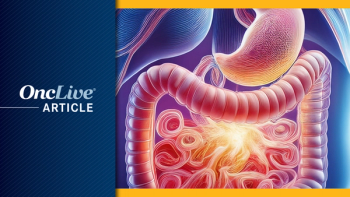
FDA Places Partial Clinical Hold on Phase 1 Trial of MT-0169 in R/R Myeloma or Non-Hodgkin Lymphoma
The FDA has placed a partial clinical hold on a phase 1 trial investigating MT-0169 in patients with relapsed/refractory multiple myeloma or non-Hodgkin lymphoma.
The FDA has placed a partial clinical hold on a phase 1 trial (NCT04017130) investigating MT-0169 in patients with relapsed/refractory multiple myeloma or non-Hodgkin lymphoma, according to an announcement from Molecular Templates, Inc.1
The decision was based on 2 previously disclosed cardiac adverse effects (AEs) that occurred in 2 patients who were treated at 50 μg/kg of MT-0169, which resulted in dose reductions to 5 μg/kg. One patient experienced grade 2 myocarditis, and another patient had asymptomatic grade 3 cardiomyopathy. Both patients fully recovered within 2 months of their respective AEs.
The FDA has requested information on the 2 patients who experienced cardiotoxicity at 50 μg/kg, the reasoning for the revised dose of 5 μg/kg, and data evaluating the clinical benefit-risk ratio for MT-0169 at lower doses.
With the partial clinical hold, patients already enrolled on the study will be permitted to continue treatment, but no new patients will be allowed to enroll until the hold is lifted by the FDA.
Since the 2 cardiac AEs, 4 patients have been treated at 5 μg/kg of MT-0169, and 3 patients have received 10 μg/kg of the agent. No cardiac AEs have been reported. Additionally, no grade 4 or 5 AEs occurred at the 50 μg/kg dose.
Molecular Templates filed a protocol amendment in January 2022, and treatment resumed in patients with relapsed multiple myeloma at 5 μg/kg. No grade 2 or greater AEs were reported, and no cardiac AEs occurred. One patient experienced a very good partial response that improved to a stringent complete response and has received study treatment for more than 7 months.
Among the 3 patients treated at 10 μg/kg, 1 had grade 2 transient diarrhea, and no cardiac AEs were observed.
“Patient safety is our highest priority. The 5 and 10 μg/kg cohorts have been completed and we have not observed any cardiac AEs or other serious AEs at these lower doses. One patient dosed at 5 μg/kg is in a stringent complete response and is in his seventh month of therapy. We look forward to sharing these data with the FDA and are confident in the benefit-risk profile of MT-0169 at these lower doses,” Roger Waltzman, MD, chief medical officer at Molecular Templates, stated in a news release. “We are excited to see early signs of clinical benefit in this difficult-to-treat patient population.”
MT-0169 is a second-generation engineered toxin body that features a single-chain variable fragment with an affinity for CD38, which is fused to the enzymatically active de-immunized Shiga-like toxin-A subunit.2 MT-0169 is designed to specifically bind to and kill CD38-expressing cells, and to avoid competition with and to overcome the primary mechanisms of tumor resistance to daratumumab (Darzalex). Additionally, MT-0169 has been shown to be active in the presence of daratumumab, pointing to its potential to be combined with approved CD38-targeted therapies.
The open-label, dose-escalation and -expansion phase 1 trial is evaluating MT-0169 in patients with relapsed/refractory multiple myeloma and non-Hodgkin lymphoma.3
In part 1, patients with relapsed/refractory multiple myeloma needed to have progressed on treatment with, be intolerant to, or not be candidates for available therapies that are known to confer clinical benefit. At least 3 lines of prior therapy, or at least 2 lines of prior therapy including a combination of a proteasome inhibitor and an immunomodulatory drug, were required.
During the dose-escalation portion of the trial, intravenous MT-0169 is being given once per week on days 1, 8, 15, and 22 of each 28-day treatment cycle. The protocol also features dosing once every 2 weeks on days 1 and 15 of each 28-day cycle, with escalating doses starting at the maximum tolerated dose (MTD)/recommended phase 2 dose (RP2D) established by the weekly dose-escalation cohort.
The primary objectives of part 1 of the trial are establishing the MTD/RP2D, rates of treatment-emergent AEs (TEAEs), instances of dose-limiting toxicities, rates of grade 3 or higher TEAEs, instances of serious AEs, rates of discontinuation of MT-1069 due to TEAEs, and instances of treatment-related dose modifications.
References
- Molecular Templates announces partial clinical hold for phase 1 study of MT-0169. News release. Molecular Templates. April 7, 2023. Accessed April 11, 2023.
https://www.mtem.com/news-media/press-releases/detail/121/ - Pipeline. Molecular Templates. 2023. Accessed April 11, 2023.
https://www.mtem.com/pipeline/mt-0169 - A Study of MT-0169 in participants with relapsed or refractory multiple myeloma or non-Hodgkin lymphoma. ClinicalTrials.gov. Updated September 8, 2022. Accessed April 11, 2023.
https://clinicaltrials.gov/ct2/show/NCT04017130



































